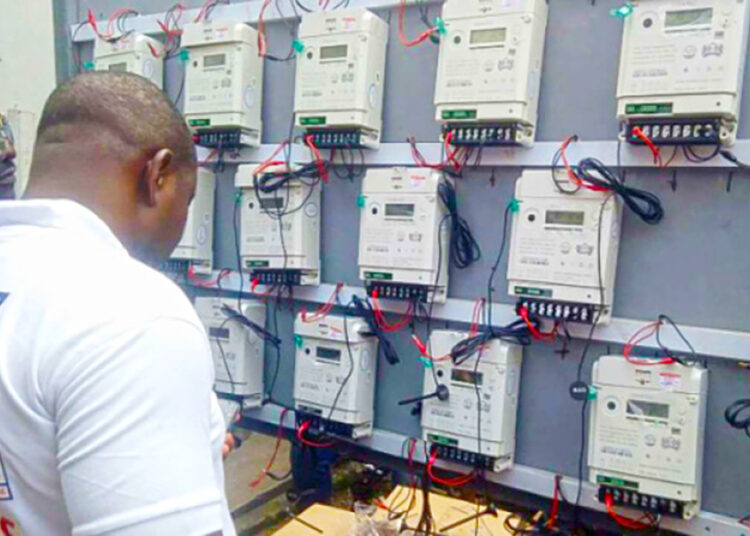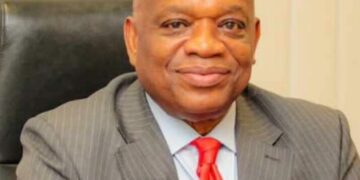More regional, professional and trade organisations have spoken out against the recent hike in electricity tariffs announced by the Nigerian Electricity Regulatory Commission (NERC) on Wednesday.
They said the government had not taken into consideration the hardship afflicting the majority of Nigerians and demanded a reversal of the policy.
The Northern Elders Forum (NEF) expressed deep concern and disappointment over the recent decision by President Bola Ahmed Tinubu government to sharply increase electricity tariffs in Nigeria.
NEF, in a statement issued by its director of publicity and advocacy, Abdul-Azeez Suleiman, said, “This reckless move displays a complete disregard for the well-being and welfare of the Nigerian people”.
The NEF said it recognises that the drastic increase in electricity tariffs will have a significant negative impact on the already struggling population, further exacerbating the gap between the rich and the poor.
It stated that a breakdown of the new tariffs reveals an alarming burden that the average Nigerian will face in bear in using electricity on a daily basis.
“Under the new tariff plan, 24 hours of electricity per day will cost a staggering N5,400, amounting to an unbearable monthly total of N162,000, and an astounding yearly total of N1,971,000. These exorbitant amounts are simply unaffordable for the majority of Nigerians, who are already grappling with economic hardship and trying to make ends meet.
“By implementing such exorbitant electricity tariffs, the government is effectively perpetuating a form of economic oppression that will only serve to widen the gap between the rich and the poor in Nigeria. It is imperative that this act of exploitation be firmly rejected and not be allowed to stand unchallenged.”
NEF further averred that the decision to implement these tariffs without considering the impact on the average citizen is not only callous but also short-sighted, adding that the resulting consequences could potentially lead to internal security threats as the disparity between the haves and the have-nots becomes more pronounced.
According to the Forum, the decision was made without carefully considering the economic realities faced by the majority of Nigerians and it highlights the government’s lack of empathy towards its citizens.
The Northern elders said instead of implementing policies that would alleviate the suffering of the people, the government has chosen to further exploit them, emphasizing that the introduction of exorbitant electricity tariffs is not only unjust but also a clear indication of the disconnect between the government and the people it was meant to serve.
“It is a blatant display of the government’s blatant disregard for the well-being of its citizens and a betrayal of the trust placed in them,” said.
The NEF, therefore, called on the government to immediately reconsider its ill-conceived decision and take into account the dire economic situation faced by the majority of Nigerians, just as it called on Nigerians to rise up and demand accountability from their leaders, reminding them that their primary duty is to serve the people, not to exploit them for personal gain.
RELATED Senate Rejects Planned Electricity Tariff Hike
Also, pan-Yoruba socio-cultural organization, Afenifere, has rejected the current hike in electricity tariff, urging the government and the regulatory body to focus on supply of electricity to its consumers before considering such a hike.Its national publicity secretary, Comrade Jare Ajayi, told LEADERSHIP that the timing of the hike is equally wrong, saying a lot of Nigerians are currently battling with hardship.
Afenifere said, ‘’It is surprising that at this crucial time when Nigerians are lamenting irregular supply of electricity, sometimes non-supply of electricity, that is the time that the electricity regulating body, NERC, will approve the increase in tariff as requested by the electricity distribution company.
“It is disappointing because it is never expected, all that Nigerians are looking for is regular supply of electricity, for now it is the communities that are lucky, they are the ones using light up to 15 to five hours electricity supply in 24 hours.
“What the government and all those who are in charge of electricity distribution need to do is to supply electricity efficiently, regularly and frequently.
“In other words, the number of hours which Nigerians enjoy electricity must be increased and the quality must increase too, because there are situations where the current is low or too high, which cause electricity surge,” he said.
“We in Afenifere implores NERC to compel DISCO to work harder on increasing the supply, rather than talking about increasing the tariff,” he added.
Similarly, the Association of Senior Civil Servants of Nigeria (ASCSN) has bemoaned the hike in electricity tariff in the country, describing the new policy as a “misplacement of priority, anti-people policy and unacceptable.”
National president of ASCSN, Etim Okon, said this while speaking with newsmen on Wednesday in Abuja on the new increase in tariff.
According to him, the hike in the electricity tariff from N66/kwh to N225/kwh for those who enjoy electricity supply for 20 hours per day is totally unacceptable and a recipe for unrest.
“This shows clearly that Nigeria is not ready for 24 hours electricity supply. I think that the policy is not right, especially at this time of socioeconomic challenges where the cost of living is very exorbitant and the salaries of the workers have remained static.
“Today, we are still battling with the fuel subsidy removal without any corresponding remedy, yet there is an increase in the electricity tariff without even the supply of electricity,” he said.
Okon remarked that the federal government was prioritising revenue generation over the welfare of Nigerians who are currently struggling to survive.
Okon, therefore, advised the government to reconsider its stance, revert to the old tariff and find ways of stabilising the economy before thinking of how to generate more revenue through taxation.
“If the labour union calls for protest, the government will say we are being insensitive, but without consultation they just woke up and announced an increase in the price of electricity.
“No worker now can boast of anything with N30,000 minimum wage. The calculation on ground and the high cost of living have already consumed everything before they even make the announcement so where are we going from here?
“Government must revert to the former tariff and allow the economy to have some level of stability,” he said.
On its part, the Association of Table Water Producers of Nigeria (ATWAP), Ogun Chapter, decried the 300 per cent increase on electricity tariff approved by Nigerian Electricity Regulatory Commission (NERC).
Mr Babatunde Lawal, state chairman of ATWAP, said on Thursday in Ota that the hike would further raise the cost of production.
Lawal noted that electricity was central to development in any economy, adding that it contributed about 30 per cent of the requirements in the table water production industry and generally in manufacturing as it provides lighting and powers machines and tools.
“An increase of 300 per cent will drive up costs as expenses will go up, if it translates to availability of electricity. The effect may be marginal as we currently pay a fortune buying diesel and premium motor spirit at the moment.
“However, the average household will have to pay more for the products while consumers may purchase less as purchasing power reduces,” he said.
He appealed to the federal government to provide loans needed to support businesses as capital had been eroded following the hike, adding that it was time for businesses to reassess strategies for profit making as a result of the current challenges in the country.
We Won’t Abandon Nigerians, Says Senate
The Senate has said that it will not abandon Nigerians if it receives reports of genitive effect from its relevant committees.
According to the Senate, it will take a position upon resumption from its recess on over 300% increase in electricity tariff for certain customers under the Band A classification.
The spokesman of the Senate, Yemi Adaramodu, stated this on Thursday that the red chamber’s action will be guided by reports from its relevant committees.
Speaking with journalists, Senator Adaramodu said relevant Committees of the Senate are watching the situation and would take a position favourable to Nigerians on its resumption.
He said: “The relevant Senate Committees on Power are studying the situation. You know we are on recess now. When we resume, they will present their findings to the Senate at plenary. We won’t abandon Nigerians.”
Adaramodu maintained that the Senate would not show indifference to any policy that would add to the economic burden of Nigerians.
The Senate last February rejected pronouncement by the Ministry of Power to approve the proposed hikes in electricity tariff by distribution companies.
Ikeja Electric Unveils Consumers Under Band ‘A’ Category In Lagos
Against the backdrop of the new electricity tariff approved by NERC, the Ikeja Electricity Distribution Company (Ikeja Electric) has released data showing 41 areas under its network that are categorised under band ‘A’ in Lagos.
LEADERSHIP reports that this category of customers is affected by the new tariff structure directed by the federal government.
Under tariff structure, customers under B and A are those receiving 20-24 hours power supply daily while those in Band B are subscribers who enjoy 16 to 20 hours.
Customers under Band C enjoy electricity for 12 to 16 hours daily while those in Band D -are beneficiaries of eight to 12 hours of power daily, which Band E subscribers only enjoy four to eight hours of electricity consumption every day.
The customers under Band A represent a 15 per cent of the 12 million electricity customers in the country, which is approximately 1.8 million subscribers.
According to Ikeja Electric, 41 areas are currently enjoying consistency in its supply and distribution pattern in Lagos.
The Band A areas are: Ijaiye (33-Ota TCN-AMJE) in Abule-Egba Business Unit enjoys 998 KW/h, Ijaiye (33-Ota TCN-Abeokuta Expressway) in Abule-Egba Business Unit enjoys 930KW/h, Able-Taylor (11-EkoroINJ-T1-Ekoro) in Akowonjo Business Unit enjoys 920KW/h,Egbeda (11-AlimoshoINJ-T8-Alimosho) in Akowonjo Business Unit enjoys 889KW/h, Anifowoshe (11-New AlausaINJ-T4-Siyanbola) in Akowonjo Business Unit enjoys 929KW/h, Anifowoshe (11-Adeniyi JonesINJ-T1-Ajao) in Akowonjo Business Unit enjoys 941KW/h, Anifowoshe (11-New AlausaINJ-T6-Awolowo) in Akowonjo Business Unit enjoys 889KW/h, Anifowoshe (11-Adeniyi JonesINJ-T1-Adeniyi Jones) in Akowonjo Business Unit enjoys 982KW/h, Ogba (11-OgbaINJ-T3-Oba Akran) in Akowonjo Business Unit enjoys 888KW/h, Ogba (11-Oke IraINJ-T2-Kayode) in Akowonjo Business Unit enjoys 867KW/h, and Ogba (11-Oke IraINJ-T2-Mangoro) in Akowonjo Business Unit enjoys 943KW/h.
Also, in the report includes Ojodu (11-OjoduINJ-T2-River Valley) in Akowonjo Business Unit enjoys 910KW/h, Oregun (11-MarylandINJ-T2-Ojota) in Akowonjo Business Unit enjoys 973KW/h, Oregun (11-OpebiINJ-T1-Olusosun) in Akowonjo Business Unit enjoys 924KW/h, Oregun (11-New AlausaINJ-T5-Kudirat) in Akowonjo Business Unit enjoys 977KW/h, Oregun (11-New AlausaINJ-T6-Ogundana) in Akowonjo Business Unit enjoys 981KW/h, Oregun (11-New AlausaINJ-T4-Allen) in Akowonjo Business Unit enjoys 989KW/h, Oregun (11-New AlausaINJ-T5-Alausa) in Akowonjo Business Unit enjoys 945KW/h, Oregun (11-New AlausaINJ-T4-Oregun) in Akowonjo Business Unit enjoys 980KW/h, Oregun (11-New AlausaINJ-T5-Morrison) in Akowonjo Business Unit enjoys 950KW/h, PTC (11-IlupejuIJN-T4-Ikorodu) in Akowonjo Business Unit enjoys 892KW/h, PTC (11-MarylandIJN-T1-PTC) in Akowonjo Business Unit enjoys 858KW/h,PTC (11-IlupejuIJN-T1-Bhojson) in Akowonjo Business Unit enjoys 923KW/h, PTC (11-PTCIJN-T2-Awuse) in Akowonjo Business Unit enjoys 991KW/h and PTC (11-IlupejuIJN-T3-General Hospital) in Akowonjo Business Unit enjoys 892KW/h.
The IE also named others as Lasunwon (33-IkoroduTCN-Fakale Source) in Ikorodu Business Unit enjoys 890KW/h, Odogunyan (11-OdogunyanINJ-T2-Centex) in Ikorodu Business Unit enjoys 854KW/h, Ago (11-ItireINJ-T3-Ago) in Oshodi Business Unit enjoys 851KW/h, Ago (33-ItireTCN-Ago 1) in Oshodi Business Unit enjoys 933KW/h, Ajao (11-AjaoINJ-T2-New Estate) in Oshodi Business Unit enjoys 906KW/h, Idimu (33-EjigboTCN-AGODO) in Oshodi Business Unit enjoys 956KW/h, Ikosi (11-MarylandINJ-T3-Demurin) in Shomolu Business Unit enjoys 947KW/h, Ilupeju (11-IlupejuINJ-T3-Coker) in Shomolu Business Unit enjoys 960KW/h and Ilupeju (11-IlupejuINJ-T3-Palmgroove) in Shomolu Business Unit enjoys 960KW/h.
The rest are, Magodo (11-MagodoINJ-T2-Bashiru) in Shomolu Business Unit enjoys 939KW/h, Magodo (11-MagodoINJ-T1-Emmanuel Keshi) in Shomolu Business Unit enjoys 998KW/h, Mende (11-MarylandINJ-T3-Sylvia) in Shomolu Business Unit enjoys 944KW/h, Mende (11-MarylandINJ-T2-Westex) in Shomolu Business Unit enjoys 981KW/h, Olateju (11-IlupejuLocal-T1-Industrial) in Shomolu Business Unit enjoys 982KW/h, Oworonshoki (11-OworoINJ-T1-Hospital) in Shomolu Business Unit enjoys 985KW/h and Oworonshoki (11-OworoINJ-T1-Anthony) in Shomolu Business Unit enjoys 965KW/h.





